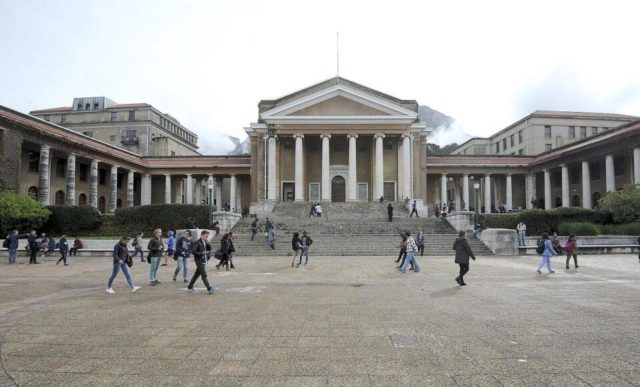Newly formed union Universities Alliance South Africa has welcomed what it described as a free of force or coercion stance on Covid-19 vaccination by UCT’s Council.
CAPE TOWN – Newly formed union Universities Alliance South Africa has welcomed what it described as a free of force or coercion stance on Covid-19 vaccination by UCT’s Council.
Council chairperson Babalwa Ngonyama announced that it had resolved that all members of the UCT community should declare, on a voluntary basis, their vaccination status.
The council met recently to deliberate on a vaccine mandate policy after it wrapped up a public participation process.
It received recommendations from a vaccine mandate panel that was set up last year to drive a public consultation process and make representations that would help the institution when making a decision.
If a mandatory vaccination policy was adopted, it would have come into effect on April 1.
“Council’s in-principle support for a vaccine mandate policy remains but any implementation of such a policy in the future will require a preceding special meeting of council to consider the prevailing circumstances, including updated information as relevant at that time, in order to inform a decision to implement the policy. Council recognises the magnitude of the mandatory vaccination issue and respects the fact that there are multiple differing opinions on the matter,” said Ngonyama.
Last year the council approved, in principle, a proposal that in this year, 2022, all staff and students provide proof that they have been vaccinated against Covid-19 as a condition to perform their duties, access any of the university’s buildings or to be registered.
The council, at a meeting on March 12, considered a detailed report of the panel. It noted ”the panel’s advice that, based on the best available evidence, vaccines are less effective at reducing transmission of the Omicron variant, and that vaccines remain effective in limiting hospitalisation and death.
“Vaccination, therefore, at this point should be seen as a mechanism for protection against severe disease and death for the vaccinated individual, and therefore the focus should be on achieving high levels of vaccination on a voluntary basis,” said Ngonyama.
Nathan Pillay, a Universities Alliance South Africa director, said should the university subsequently decide to proceed with a mandatory vaccination policy as originally intended, it too will be challenged in court.
“We note in particular their admission that ’the vaccines are less effective at reducing transmission of the Omicron variant’, which vindicates Universities Alliance South Africa’s scientific claims and calls into question the premise of a ’greater good’ used by other universities to bypass the constitutional rights of students and staff in implementing mandatory vaccination policies,” said Pillay.
He said universities that did not recant their decisions in favour of mandatory vaccinations were now even more hard-pressed to maintain their current trajectory and would face action at the Constitutional Court.
Cape Times








